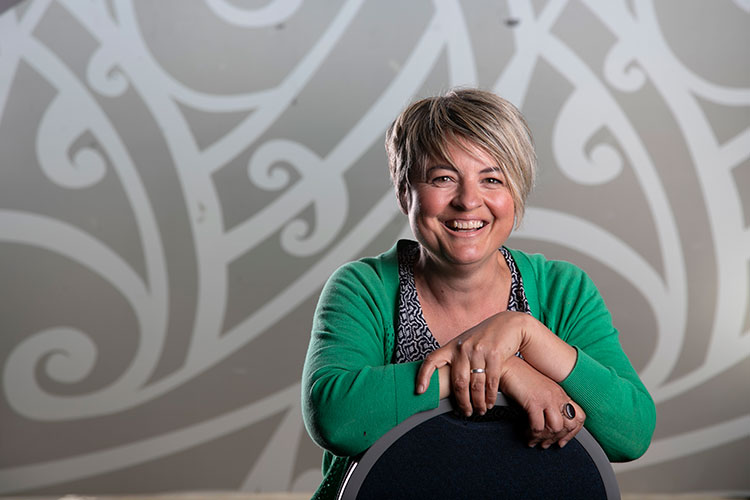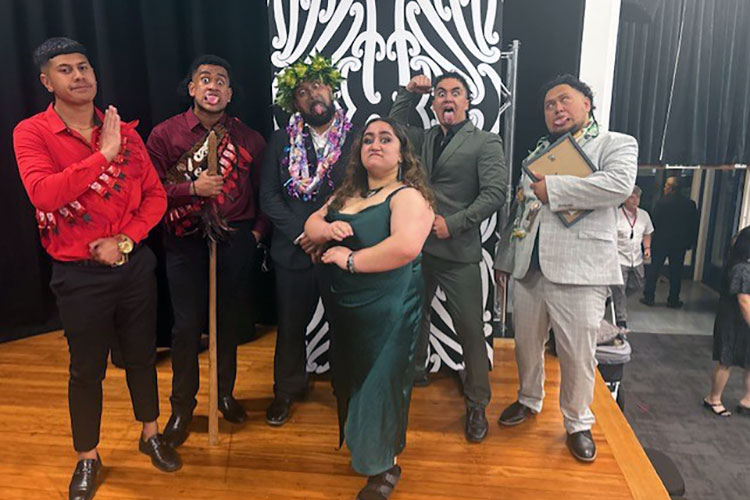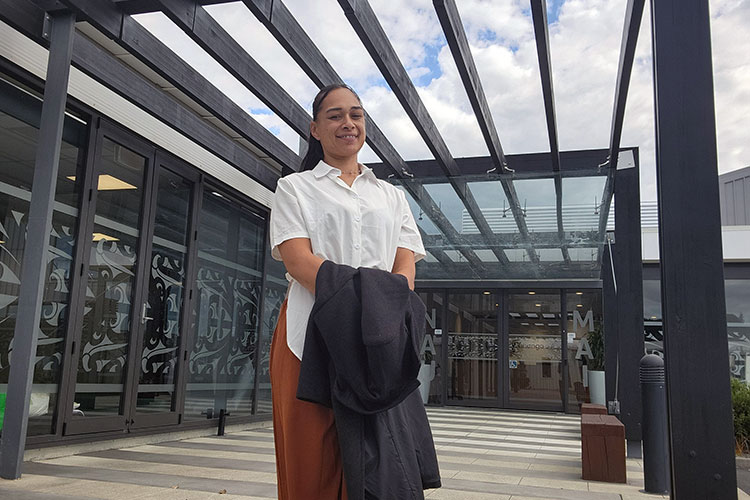Michelle Sarker spent a year studying rongoā and wanted to follow that by learning te reo Māori, but she found herself studying social services instead, and couldn’t be happier.
“I felt like the door just opened. It’s been amazing and has really awakened a lot in me this year,” she says.
Michelle is studying the Level 4 Manaaki Tangata Certificate in Bicultural Social Services programme at the Waitakere campus of Te Wānanga o Aotearoa and says it’s changed the way she views the world.
“I’ve been a stay-at-home mum for 12 years so I wanted to get back into the community. But because of the children and the things that I’ve gone through, my own self journey, I haven’t been in the real world so much, so this certificate has been perfect. It’s just opened a lot up for me, its amazing.”
Michelle initially intended enrolling in a te reo Māori course for 2020 but after a friend suggested she consider social services she attended an open evening at Waitakere and ended up enrolling there.
“This campus is beautiful, I love that it’s small, it’s quiet, it’s super friendly and it’s 10 minutes from home. They have been welcoming to my tamariki, who come on Wednesdays for an hour or so until my husband picks them up. It’s convenient, it’s friendly and the whole wānanga experience had been amazing.
“It’s opened up my creativity as well, so being able to express myself and my ideas, having a space where I can be free to share my ideas.”
And she’s been sharing her ideas with classmates from around the world.
“I think there’re about seven or eight cultures in our roopu, which is incredible. I’m the only Pākehā so it’s been a real honour getting to know myself amongst other cultures. I’ve learnt a lot about me.”
The course provides students with a social services qualification but Michelle says it provides many other benefits, whatever your background.
“I think everybody should study under a kaupapa Māori framework, anybody from any culture. I’d love to see more Pākehā on board because for me, me and my family are typical Kiwis, don’t really understand Te Tiriti, didn’t grow up with te reo, that sort of thing. What it’s done, it’s had a knock on effect to my whānau so that’s been really good, really positive,” she says.
“I just think it’s a beautiful course. The kaiako are here to help you as a person, you’re not just a bum on a seat, and they recognise that it’s a journey for you and you’ll learn a lot about yourself and other people.
“Whanaungatanga for me is the key. It’s all about connection and connecting and I think what sums it up for me is connections through aroha - the breath of life - and really understanding what that is and how we need connection. It’s about really listening to people, taking the time to really, deeply listen and not trying to be arrogant and think my way’s better than your way. Listen to people’s stories and hear where people are coming from.”
And while she is yet to decide whether to continue studying or start working in the social services sector, Michelle has made up her mind about where she wants to study.
“I’d love to remain at the wānanga. Education is really valuable to me so I feel like I’ll always be in education, whether I’m educating or being educated. Whether I step into being a social services worker or into a diploma or a degree, I’m still at the crossroads, but the certificate is a stepping stone.”




































